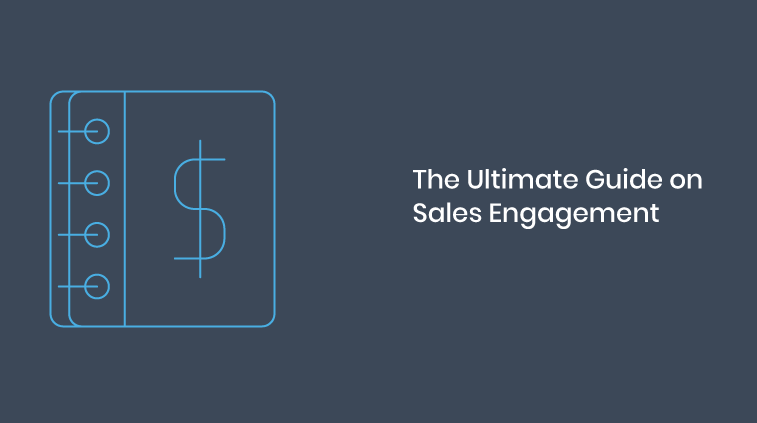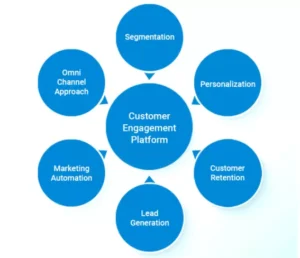Sales engagement platforms are a crucial tool for streamlining and optimizing sales processes. This ultimate guide covers everything you need to know about these platforms.
It explores their definition, key features, benefits, and how to choose the right one for your business. You’ll learn about the various types of sales engagement platforms available, as well as their integration capabilities with other sales tools. Additionally, the guide provides tips for successfully implementing and adopting a sales engagement platform, along with real-life examples of companies that have achieved significant results through their use.
By the end of this guide, you’ll have a comprehensive understanding of sales engagement platforms and how they can revolutionize your sales efforts.

Credit: later.com
Key Features And Functionality
Discover the key features and functionality of sales engagement platforms in this comprehensive guide. Gain a deep understanding of everything you need to know about leveraging these platforms to drive sales and enhance customer engagement.
Sales engagement platforms are essential tools for streamlining and optimizing your sales process. These platforms provide a range of features and functionalities to help your sales team work more efficiently and effectively. In this section, we will explore some of the key features that make these platforms so powerful.
Email Sequencing And Automation
Email sequencing and automation is a crucial feature of any sales engagement platform. With this functionality, you can create automated email sequences that are personalized and sent at the right time. This keeps your prospects engaged and ensures that no leads fall through the cracks. Automation eliminates manual tasks and saves time for your sales team, allowing them to focus on building relationships and closing deals.
Call Tracking And Recording
Call tracking and recording is another valuable feature offered by sales engagement platforms. By tracking calls, you can gain insights into your team’s performance, identify trends, and measure the effectiveness of your sales strategy. Recording calls allows you to review and analyze conversations, providing feedback for coaching and improvement. This feature not only helps your team stay accountable but also enables you to enhance customer interactions and maintain a high level of service.
Analytics And Reporting
Analytics and reporting are essential functionalities that provide valuable data-driven insights. With the analytics feature, you can track metrics such as email open rates, click-through rates, and response rates. These insights help you understand the effectiveness of your outreach efforts and make data-driven decisions to optimize your sales process. Reporting features enable you to generate comprehensive reports to monitor team performance, track key metrics, and identify areas for improvement. With real-time data and analytics, you can continuously refine your sales strategy and drive better outcomes. In conclusion, sales engagement platforms offer a wide range of features and functionality to empower your sales team. With email sequencing and automation, call tracking and recording, and analytics and reporting capabilities, you can enhance productivity, drive meaningful customer interactions, and achieve better sales results.

Credit: www.growbots.com
Benefits Of Sales Engagement Platforms
Sales engagement platforms offer numerous benefits to businesses. These platforms enable streamlined communication, personalized interactions, and improved lead conversion rates. With advanced features like automation and analytics, sales teams can effectively engage, nurture, and close deals with potential customers. Gain a comprehensive understanding of sales engagement platforms in our ultimate guide.
Increased Productivity And Efficiency
Sales teams are constantly looking for ways to maximize their productivity and efficiency. With sales engagement platforms, these goals become much more attainable. These platforms offer a wide range of benefits that help streamline sales processes and allow sales reps to focus on what they do best: selling.
One of the key advantages of sales engagement platforms is the ability to automate repetitive tasks. By automating tasks such as email outreach, follow-ups, and data entry, sales reps can save valuable time and energy. They no longer have to spend hours sending individual emails or manually inputting customer information, freeing up their schedule to focus on building relationships and closing deals.
In addition to automation, sales engagement platforms also provide tools for sales teams to collaborate effectively. These platforms often feature shared calendars, team messaging, and document sharing capabilities. With these tools, teams can easily coordinate their efforts, share insights and best practices, and ensure everyone is on the same page.
Improved Sales Performance
Sales engagement platforms have a direct impact on sales performance by equipping sales reps with the tools they need to succeed. These platforms offer advanced analytics and reporting features that provide valuable insights into sales activities, allowing sales reps and managers to identify strengths and weaknesses in the sales process.
By analyzing these data-driven insights, sales teams can optimize their strategies, target high-potential prospects, and prioritize their efforts more effectively. With access to real-time metrics, reps can make informed decisions and adjust their sales approach on the fly. This leads to a more proactive and strategic sales process, ultimately driving higher conversion rates and revenue.
Furthermore, sales engagement platforms often include built-in coaching and training functionalities. These features enable managers to provide timely feedback, share best practices, and track individual rep performance. With access to personalized coaching, sales reps can continuously improve their skills and techniques, leading to a more capable and confident sales force.
Enhanced Customer Experience
Achieving sales targets is not just about selling—it’s about delivering exceptional customer experiences. Sales engagement platforms are designed to enhance the overall customer journey, ensuring that prospects and customers receive the attention and care they deserve.
With sales engagement platforms, sales reps can personalize their communications and engage customers at every touchpoint. These platforms often offer email templates, call scripts, and social media integrations that enable reps to tailor their messages to individual customer needs. By providing relevant and timely information, reps can build stronger relationships, establish trust, and address customer pain points effectively.
Furthermore, sales engagement platforms allow for seamless multi-channel communication. Whether through email, phone calls, social media, or live chat, sales reps can maintain a consistent and personalized dialogue with customers. This ensures that no opportunities are missed, and all customer interactions are timely and relevant to their specific needs.
Ultimately, the enhanced customer experience provided by sales engagement platforms leads to increased customer satisfaction, loyalty, and referrals. Satisfied customers are more likely to become brand advocates, promoting the business and driving additional revenue through positive word-of-mouth.
Choosing The Right Sales Engagement Platform
Choosing the right sales engagement platform is crucial for the success of your sales team. With so many options available in the market, it can be overwhelming to make a decision. In this section, we will guide you through the process of choosing the perfect platform that aligns with your needs and goals.
Identify Your Needs And Goals
Before diving into the sea of options, take a step back to identify the specific needs and goals of your sales team. Consider factors such as the size of your team, the type of sales process you follow, and the specific pain points you want to address. By clearly defining your requirements, you can narrow down your choices and find a platform that caters exactly to your needs.
Evaluate Key Features
Once you have identified your needs, it’s time to evaluate the key features offered by sales engagement platforms. Look for features that are essential for your team’s success. These may include email automation, call tracking, analytics and reporting, task management, and CRM integration. Evaluate each platform’s feature set carefully and choose the one that offers the most comprehensive and effective tools for your team.
Consider Integrations And Scalability
Integrations and scalability are two crucial factors to consider when choosing a sales engagement platform. Ensure that the platform seamlessly integrates with your existing systems, such as your customer relationship management (CRM) software. This will enable smooth data transfer and streamline your sales processes. Additionally, consider the scalability of the platform. As your sales team grows, you’ll want a platform that can expand and accommodate your increasing needs without any hassle.
With these three steps – identifying your needs and goals, evaluating key features, and considering integrations and scalability – you can confidently choose the right sales engagement platform for your team. Remember, selecting the perfect platform will empower your sales team, boost productivity, and drive better results.
Implementing And Maximizing The Value
Discover how to implement and maximize the value of sales engagement platforms with this comprehensive guide. Learn everything you need to know to boost your sales strategies and increase revenue.
Implementing and Maximizing the Value Implementing and maximizing the value of a sales engagement platform is essential for maximizing sales team productivity and achieving business growth. To ensure your organization takes full advantage of this powerful tool, it is crucial to focus on three key areas: training your sales team, monitoring and optimizing performance, and leveraging analytics to drive strategy. Train Your Sales Team Proper training is vital when implementing a sales engagement platform. Equip your sales team with the knowledge and skills they need to effectively leverage the platform for increased productivity and successful sales outcomes. Here’s how you can train your sales team to make the most out of your sales engagement platform: 1. Start with a comprehensive onboarding program to introduce your sales team to the platform’s features and functionalities. 2. Provide hands-on training sessions to ensure that your sales team becomes familiar with the platform’s interface and workflows. 3. Encourage continuous learning by offering ongoing training opportunities to keep your sales team up-to-date with new features and best practices. Monitor and Optimize Performance To ensure the success of your sales engagement platform implementation, continuous monitoring and optimization are crucial. Regularly evaluate your team’s performance and make necessary adjustments to improve sales outcomes. Here are some strategies to monitor and optimize performance effectively: 1. Establish key performance indicators (KPIs) to track your team’s progress and identify areas for improvement. 2. Conduct regular performance reviews to assess individual and team performance, providing targeted feedback and coaching. 3. Leverage the platform’s reporting capabilities to gain insights into sales activities, identify bottlenecks, and optimize your sales process. Leverage Analytics to Drive Strategy Analytics plays a vital role in driving strategy and maximizing the value of your sales engagement platform. By harnessing the power of data, you can make informed decisions and boost your sales efforts. Here’s how you can leverage analytics effectively: 1. Use data-driven insights to identify patterns and trends in customer behavior, allowing you to tailor your sales approach accordingly. 2. Track the effectiveness of your sales campaigns and content to optimize engagement and conversion rates. 3. Analyze customer interactions to gain valuable insights into their preferences, needs, and pain points, enabling you to deliver personalized sales experiences. By focusing on these three areas – training your sales team, monitoring and optimizing performance, and leveraging analytics to drive strategy – you can effectively implement and maximize the value of your sales engagement platform, leading to improved sales outcomes and business growth.
Best Practices And Tips
When it comes to utilizing a Sales Engagement Platform effectively, there are several best practices and tips that can make a significant impact on your sales efforts. By implementing these techniques, you can improve efficiency, enhance personalization, and ultimately increase your conversion rates. In this section, we will explore three key best practices:
Define Sales Engagement Processes
To maximize the potential of a Sales Engagement Platform, it is crucial to define your sales engagement processes. Start by identifying the stages of your sales cycle and map out the touchpoints where engagement is necessary. This will provide a clear roadmap for your sales team, ensuring consistent and effective outreach.
Consider creating a well-defined workflow that outlines the tasks, timelines, and responsibilities for each stage. This will help your team stay organized and maintain a structured approach to engagement. Remember to align your processes with your company’s goals and objectives to ensure a cohesive and targeted sales strategy.
Personalize Outreach And Follow-up
Personalization is key when engaging with prospects. Gone are the days of generic, mass-market messaging. To stand out from the competition, take the time to understand your prospect’s pain points, challenges, and goals. Craft targeted messages that address their specific needs and offer tailored solutions.
Keep in mind that personalization extends beyond the initial outreach. Following up in a personalized manner reinforces your interest and dedication to helping the prospect. Use information gathered during previous interactions to create context and make each follow-up relevant. These personalized touchpoints build trust, demonstrate your understanding, and increase the likelihood of a positive response.
Test And Iterate
To continuously improve your sales engagement efforts, it is essential to test and iterate your strategies. Experiment with different messaging, subject lines, call-to-actions, and timing to identify what resonates most with your target audience.
Start small by A/B testing different variations of your outreach emails or social media messaging. Monitor the open rates, click-through rates, and response rates to determine which approaches are most effective. Based on these insights, refine your strategies and iterate on what works best for your prospects.
Remember that sales engagement is not a static process. As market dynamics change and customer preferences shift, it is crucial to adapt and evolve your approach. By regularly testing and iterating, you can stay ahead of the curve and ensure your sales engagement efforts remain relevant and impactful.

Credit: www.quantified.ai
Frequently Asked Questions For The Ultimate Guide To Sales Engagement Platforms: Everything You Need To Know
What Are Sales Engagement Platforms?
Sales engagement platforms are software tools designed to help sales teams streamline and enhance their sales processes. These platforms typically offer features such as CRM integration, email automation, call tracking, and analytics to help salespeople efficiently manage their interactions with prospects and close deals.
What Is The Difference Between Crm And Sales Engagement Platform?
A CRM focuses on managing customer relationships, while a sales engagement platform automates and optimizes sales activities. The main difference is that CRM helps with customer data and interactions, while sales engagement platforms aid in sales team productivity and effectiveness.
What Is A Sales Engagement Strategy?
A sales engagement strategy is a plan to effectively interact with potential customers. It involves personalized outreach, using channels like email, phone calls, and social media, to build relationships, understand customer needs, and close deals. The goal is to streamline the sales process and maximize revenue.
How Do I Choose A Customer Engagement Platform?
To choose a customer engagement platform: 1. Identify your goals and needs. 2. Look for a platform that offers seamless integration with your existing systems. 3. Consider scalability and customization options. 4. Prioritize a platform that provides real-time analytics and reporting.
5. Evaluate the platform’s security measures and customer support. Make an informed decision based on these factors.
Conclusion
Sales engagement platforms are a critical tool for modern businesses. By streamlining and automating sales processes, they empower teams to connect with leads and close deals more efficiently. From managing communications to tracking interactions, these platforms offer a comprehensive solution to optimize sales efforts.
With the insights gained from this ultimate guide, you are now equipped to make informed decisions and propel your sales success to new heights. Embrace the power of sales engagement platforms and watch your business thrive.




